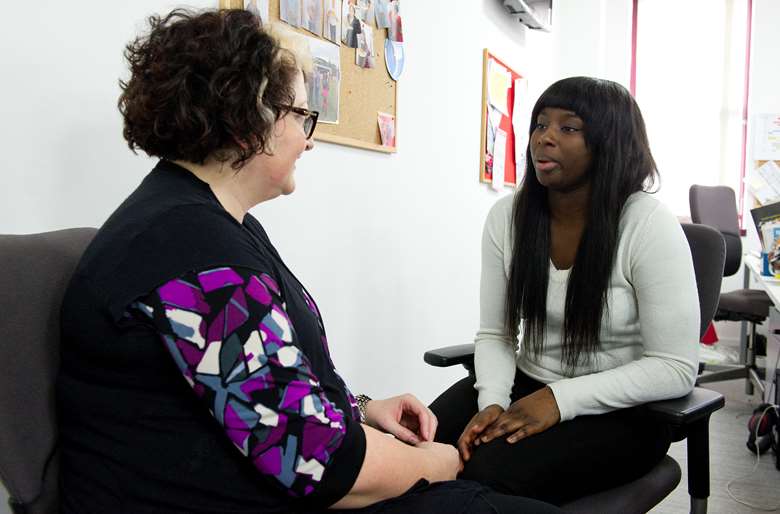Campaigners criticise scale and pace of government's children's mental health plans
Joe Lepper
Wednesday, July 25, 2018
Government plans to improve children's mental health have been criticised by campaigners after it was confirmed that efforts to boost support will not be introduced countrywide for at least four years.

The government's response to a consultation on its green paper Transforming Children and Young People's Mental Health has confirmed that "trailblazer" areas, to test improved support for children in schools, will be launched by 2022/23, covering between a fifth and a quarter of England.
The first trailblazers will launch by the end of 2019 and will involve schools, councils and charities working together to roll out mental health support teams in schools and colleges, who will appoint a designated mental health lead. Courses to train members of these support teams will start from January 2019.
Since the plans were first unveiled in December last year, children's campaigners and professionals, as well as MPs, have said plans will fail to help the majority of children who need mental health support.
Campaigners have said the government's confirmed plans are too focused on the trailblazer schemes, pointing out they will only be available in a small number of areas.
Children's Society chief executive Matthew Reed said all schools and colleges should be provided with counsellors to support children.
He also wants the government to extend access to child and adolescent mental health services (CAMHS) for young people up to the age of 25, to ensure they do not fall "through the cracks" between children's and adult mental health support.
"Hundreds of thousands of young people are struggling with mental ill-health and these proposals fall short of what is needed to urgently tackle long waiting times and shortcomings in support," he said.
"As little as one fifth of the country would benefit from the planned pilot schemes, meaning the current postcode lottery will continue for the foreseeable future and it could be years before the changes are rolled out.
"Many more children could be reached, and quickly, by committing to the provision of counsellors in all secondary schools and colleges as soon as possible."
Click links below for related CYP Now content:
Special Report: Children's Mental Health
Analysis: Plan for closer school-CAMHS ties
Barnardo's said it is "bitterly disappointed" by the government's response to the consultation and its focus on trailblazer sites that "won't help 75 per cent of England until 2022".
The charity's chief executive Javed Khan said: "Theresa May has described mental illness as a burning injustice that required a new approach from government.
"However, actions speak louder than words. The government's response to the green paper consultation does not show enough action on how as a society we are going to stop sleepwalking into a children's mental health crisis.
"The response has let down the children who gave their views about the problems with the Green Paper and if the government does not rethink its approach, it runs the risk of letting down future generations too."
Emma Thomas, chief executive of Young Minds said that while the government's plans are a "step in the right direction" the measures "won't solve the crisis" in children's mental health.
"Schools have a crucial role to play in intervening quickly when mental health problems emerge, and it's positive that this is recognised in the green paper," she said.
"But these plans are only being rolled out over a quarter of the country over the next five years, leaving three-quarters of children with no extra support.
"We also need to see a more fundamental rebalancing of the education system, so that schools are no longer pushed to prioritise exam results over the wellbeing of children. Schools that focus on wellbeing actually tend to do better academically, so it makes sense to focus on this rather than putting children under yet more pressure.
"But this will only happen if schools are able to make wellbeing a genuine priority, through improved resources and better recognition in the Ofsted inspection framework.
"It's also vital that there is better support for young people outside school, or beyond school age, through community and youth organisations."
The Royal College of Paediatrics and Child Health (RCPH) labelled the government's response and focus on trailblazer sites as "disappointing".
"We know there is high demand for mental health support in educational settings therefore additional investment in support staff in this sector is a move that's welcome," said RCPH officer for health promotion Dr Max Davie.
"However, children and young people's mental health cannot be supported by one service alone. It takes a number of teams working collaboratively and inclusively to provide patients with the best possible outcomes. What's needed is more resource to support the integration of child health, primary care and other agencies within a local child and adolescent mental health system."
The mental health support teams will treat young people and children with "mild to moderate" mental health issues and will refer on those with more severe needs to specialist services.
The government's consultation response also includes a commitment to piloting four-week waiting times for accessing specialist mental health provision.
The designated senior mental health leads in schools and colleges are likely to be an existing member of staff, who will liaise with mental health professionals and coordinate mental health support in schools.
"Young people today face different pressures from those of the generations before them and, at times, it can prove difficult to know how to navigate them," Education Secretary Damian Hinds said.
"I want to make sure that when signs of mental illness appear, young people know where they can access appropriate support
"Teachers already do so much to support their pupils and we want to support them further to improve the important work done between schools and local NHS services to make sure young people can get that help quickly."




